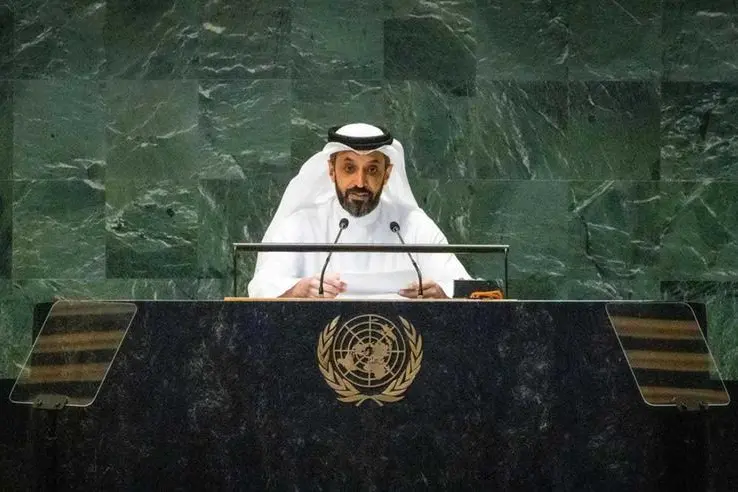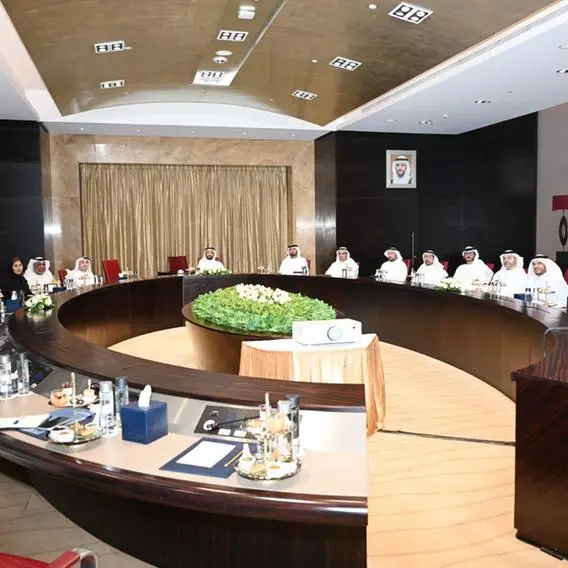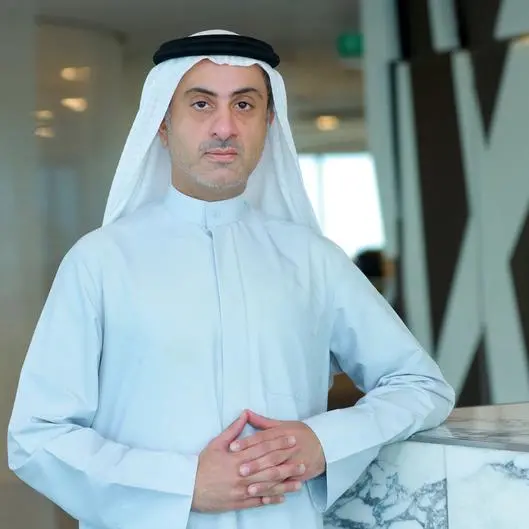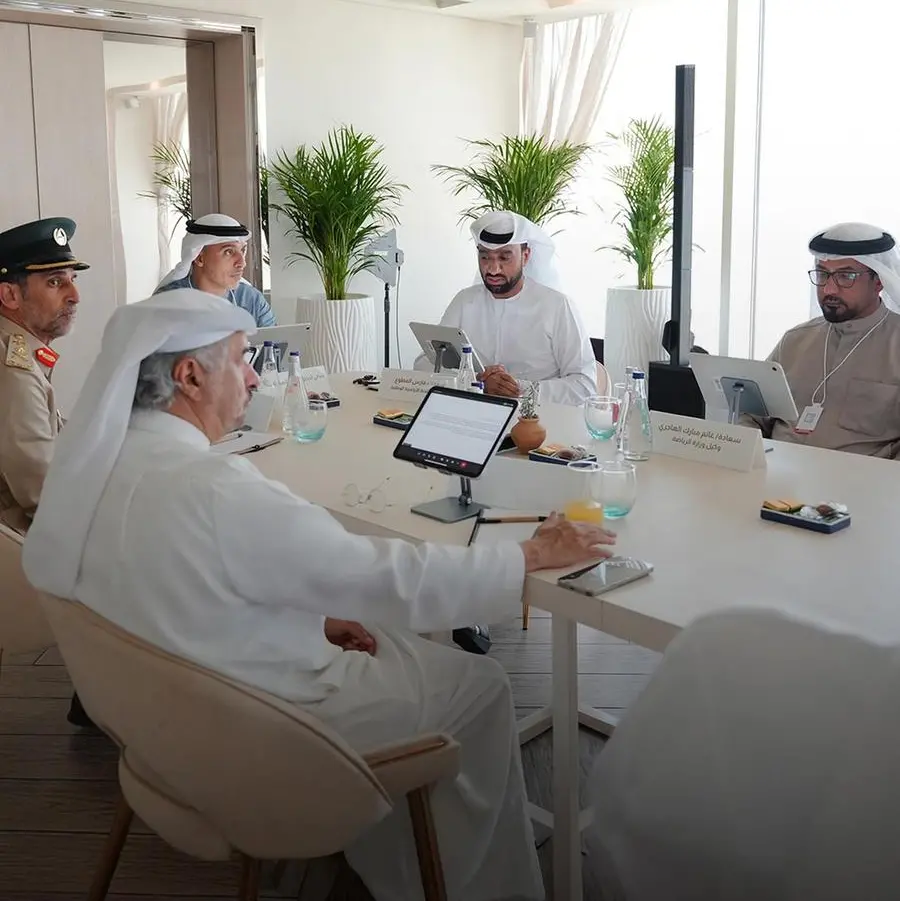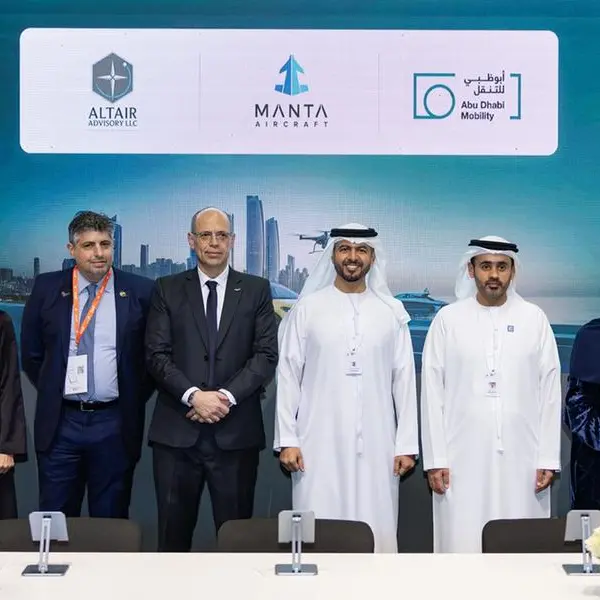PHOTO
- Ahmed Bin Sulayem, Chair of the Kimberley Process, delivered an update on the UAE Chairmanship’s ‘Year of Delivery’ in 2024 at the United Nations General Assembly in New York
- UAE-led resolution on “The role of Diamonds in Fueling Conflict” adopted by UN and co-sponsored by 37 countries
- Bin Sulayem: “I am pleased to say that with this structure now in place, the UAE Chairmanship has taken one of the most concrete measures to ensure the long-term operational efficiency of the KP.”
Dubai, UAE: Ahmed Bin Sulayem, the UAE’s Chair of the Kimberley Process (KP), addressed the United Nations General Assembly (UNGA) in New York, presenting the UAE’s 2024 Chairmanship achievements under its ‘Year of Delivery’ and introducing the UAE-led resolution, “The Role of Diamonds in Fueling Conflict”, which was adopted by overwhelming majority at the UN.
The resolution, co-sponsored by 37 countries, reflects key decisions reached by consensus during the UAE’s tenure, reinforcing the KP’s mission to ensure conflict-free global diamond trade. It also gives international recognition to the UAE’s major milestones, including the establishment of the first-ever KP Secretariat in Gaborone, Botswana, and the appointment of the KP Executive Secretary, marking a significant step towards institutionalising the process for long-term efficiency.
Other landmark achievements highlighted in the resolution include Uzbekistan’s integration as the 60th KP member and the lifting of restrictions on rough diamond exports from the Central African Republic (CAR) after a decade-long ban. While not legally binding, the resolution strengthens global commitment to conflict-free diamond trade and recognises the UAE’s leadership in advancing the KP’s mission.
Speaking at the UNGA, Ahmed Bin Sulayem, KP Chair, said:
“2024 was a historic and defining year for the UAE’s Chairmanship. From the outset, we committed to a simple yet ambitious goal: to ensure that this would be a “Year of Delivery.” Despite the complexities of the geopolitical landscape, we delivered on our objectives. We ensured meaningful progress, advanced the agenda and reinforced the integrity of the Kimberley Process.”
Bin Sulayem highlighted specific initiatives launched by the UAE in 2024 that were reflected in the UN resolution:
“In 2024, the UAE Chairmanship visited 27 KP countries, convened the first-ever Special Session of Plenary, which passed three written procedures, hosted a panel of experts including members of diamond-reliant communities, and inaugurated the KP Secretariat in Gaborone, Botswana [...] I am particularly proud that after 11 years of restrictions on the export of rough diamonds from the Central African Republic, and following a peer review mission led by South Africa, that Plenary unanimously agreed to lift all sanctions under enhanced vigilance […] Finally, we oversaw the launch of the KP Secretariat and the appointment of its first full-time Executive Secretary. I am pleased to say that with this structure now in place, we have taken one of the most concrete measures to ensure the long-term operational efficiency of the KP.”
Other nations speaking at the UN General Assembly commended the UAE for its work as KP Chair during 2024.
A representative of the European Union said: “The EU congratulates the United Arab Emirates for its good offices in building consensus amid extraordinary times. This joint initiative of governments, civil society and industry has had valuable developmental impact in improving the lives of people dependent on the trade in diamonds, reinforcing the message that diamonds belong to the communities that mined them, not to militias. We look forward to working with the United Arab Emirates in 2025 and with all participants and observers in the year ahead.”
A representative of Zimbabwe stated: “Zimbabwe congratulates the United Arab Emirates for efficiently steering the negotiations for this General Assembly resolution on the role of diamonds in fuelling conflict. We also applaud the UAE on its successful tenure as Kimberly Process Chair for 2024 and continuing as Custodian Chair for 2025. The global diamond industry employs approximately 10 million people, about half of whom work in Africa's diamond industry. We call for continued efforts to enhance job creation and growth of the natural diamond industry. The Kimberly Process plays a vital role in securing this trajectory.”
A representative of the Central African Republic said: “The Central African Republic would like to warmly congratulate the United Arab Emirates for their exemplary leadership in conducting negotiations leading up to this resolution. Their keenness to listen and their commitment to achieve a balanced consensus have proved essential. I'd also like to congratulate them for the exemplary chairmanship of the Kimberley Process and for the remarkable progress achieved under their leadership during the plenary session in 2024 in Dubai. The commitment of the UAE has allowed us to bolster the integrity and effectiveness of the Kimberley Process, and we must collectively pursue this dynamic to benefit a responsible and transparent mining industry.”
The UAE will continue to lead the KP as Custodian Chair in 2025 and will also Chair the Committee on Participation and Chairmanship (CPC) in 2026.
-Ends-
Media Enquiries:
DMCC
PR & Corporate Communications
pr@dmcc.ae
About the Kimberley Process:
The KP is an international group tasked with regulating the global diamond trade. Established in 2003 by the United Nations, it comprises 60 members representing 86 countries that seek to ensure that unregulated rough diamonds do not enter the legitimate diamond market as a means to finance conflict. In 2016, the UAE became the first and only Arab country appointed to the annual Chairmanship. The Kimberley Process Certification Scheme (KPCS) in the UAE falls under the Ministry of Economy, which has authorised DMCC to manage the nation’s import and export procedures for rough diamonds. In 2023, the UAE recorded robust growth in its trade of rough and polished diamonds, reaching a combined value of USD 38.3 billion.
